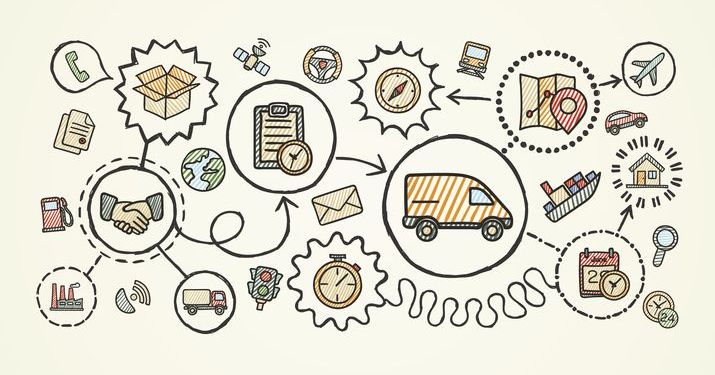The logistics and supply chain sector have witnessed an unprecedented wrath from the Novel Corona virus pandemic since when it started during the early months of 2020, is slowing seeing a potential of a powerful comeback with companies exhibiting immense potential and growth. The multiple challenges like labour shortage, cargo holdup, manufacturing slowdown, delayed orders, demand and supply shortfalls that India faced during the lockdown period resulted in a slow movement of the logistics sector.
Cargo holdups at several ports and with port shutdown contributed to lesser inventories; raw materials to finished products showed a downward trend. With most countries around the world imposing lockdowns, minimal export-import movements have amplified the crisis in the logistics space, they also affected the manufacturing sector with limited raw material availability, this temporary halt reduced the requirement of logistical service as a result supply chains suffered a major setback. While during lockdown, most companies got back to their drawing tables to revisit and revitalize their individual supply chains and to revive the logistical sector. As lockdown eased, there was a fresh breath of life to the logistical sector with a whole lot of ideas and new transformations with technological and out of the box solutions.
One such new mile stone was Alternative data in the FMCG sector. Though the FMCG sector was staying put during the lockdown period, there were a lot of challenges that this sector faced like, shortage of supply, panic buying resulting into sudden depletion of stock, lesser inventories to work with etc… To tackle this issue, FMCG sector implemented alternative data, to collect, clean, analyse and interpret data and provide it as a product that could inform investment and strategic decisions for business enterprises. We would have noticed that during lockdown a lot of small-scale business cropped up like mushroom’s all over the place providing essential services. This small step gave raise to bringing logistics back on track where some of the trucking companies that were out of business during the lockdown period started getting smaller but steady movement of their trucks to transport essential services or goods. The next big downturn was in our major ports across the country. Ports in India had also seen a decline in the movement of container and non-container trafficduring the lockdown period.
The data shows that there was a significant impact on the major ports since when the lockdown started in March 2020. Recently, in reply to a question in the Lok Sabha, Shipping Minister Mansukh Mandaviya said “There was a considerable decline in the total traffic, container traffic and non-container traffic in March, April, May, June, July and August, 2020 as compared to the corresponding months in 2019. However, recovery has started since June 20.” Since June 2020 the ports have kick started from where they left off way back in March 2020. Port operations took a huge
beating during lockdown period simply due to manpower availability which was less than 65%; however, from June 2020 this also started getting back to normalcy with manpower availably soaring to more than 80%. We should be proud of our port operations because major Indian ports have played an instrumental role in extending support for ensuring smooth movement of essentials while also ensuring that the international trade continues unhindered and also that the economy continues moving ahead. The current value of the Indian logistics Industry in 2019 is said to be around $160 Billion and the world anticipates this to grow to at least $250 Billion in the year 2020.
This growth can be attributed to the increasing number of e- commerce retailers and their stellar services to the country’s consumers. Why is logistics growth important? The new generation consumer behaviour shows that they rely on e-commerce for their needs and this portrays that there is a huge online-shopping market for the logistics industry to tap into in India. With the entrance of several MNCs into the FMCG sector of the country also creates new avenues of opportunity for the Indian logistics industry to grow.
Thesenew and upcoming sectors’ progress has a direct impact on the growth of theIndian logistics industry’s inventory management and effective warehousing solutions. There are a number of logistic start up’s in India that have emerged bringing in with them the talent pool, technology innovations and a powerful mind-set that which looks into breaking barriers of the run-of-the-mill methodologies and turning them into consumer appeasing products and services boosting logistics and supply chain operations plus encouraging economic growth of the country.




